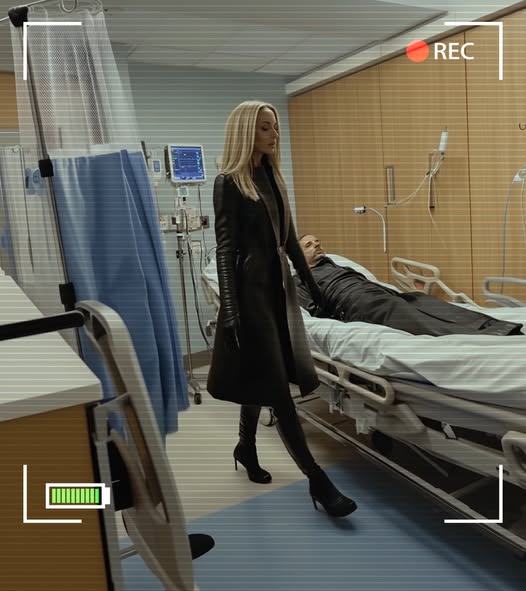My husband, Eric, was told he had only weeks to live due to cancer. I was sitting outside the hospital, devastated, when a stranger approached me.
She sat down and said, “Set up a hidden camera in his room. HE’S NOT DYING.”
Confused, I asked, “What do you mean? The doctors said he’s dying.”
Her reply was simple, “Trust me. Set up the camera. You deserve to know the truth.” Then, she walked away.
Her words stayed with me, nagging at my mind. Desperate for answers, I secretly installed the camera while Eric was in for a scan.
Later that evening, I watched the footage. At first, everything seemed normal—Eric lying in bed. Then, at 9 PM, a woman in a stylish leather coat with perfectly styled hair entered. She looked stunning. To my shock, my “dying” husband effortlessly jumped out of his bed.
But the worst was yet to come.
The woman in the leather coat was none other than Eric’s doctor. I watched in disbelief as they shared a passionate embrace—far from a simple hug, it was clear they had a relationship. He didn’t seem like a terminally ill man at all.
Heartbroken and confused, I continued to watch as they spoke casually, sipping wine she had brought. Seeing him so vibrant, so different from the frail man I’d been caring for, was surreal. They laughed, and at one point, she even glanced at his charts, smirking, and mentioned “making it convincing.”
The next day, I confronted Eric with the footage. His face turned pale as he watched the video on my phone. Tears flowed, and the truth came out. Eric confessed that he had been misdiagnosed but found out the truth a month ago. Fearing I would leave him because of his past mistakes, he and his doctor had hatched a plan to fake his illness, thinking that a health scare would fix our relationship.
I was sickened by the betrayal and lies. With a heavy heart, I left him behind. It took time, but I healed, discovering strength I didn’t know I had. Eventually, I started a support group for spouses of the terminally ill, using my own experience to help others cope with both genuine loss and betrayal, ensuring that compassion and honesty were always at the core of our work.
